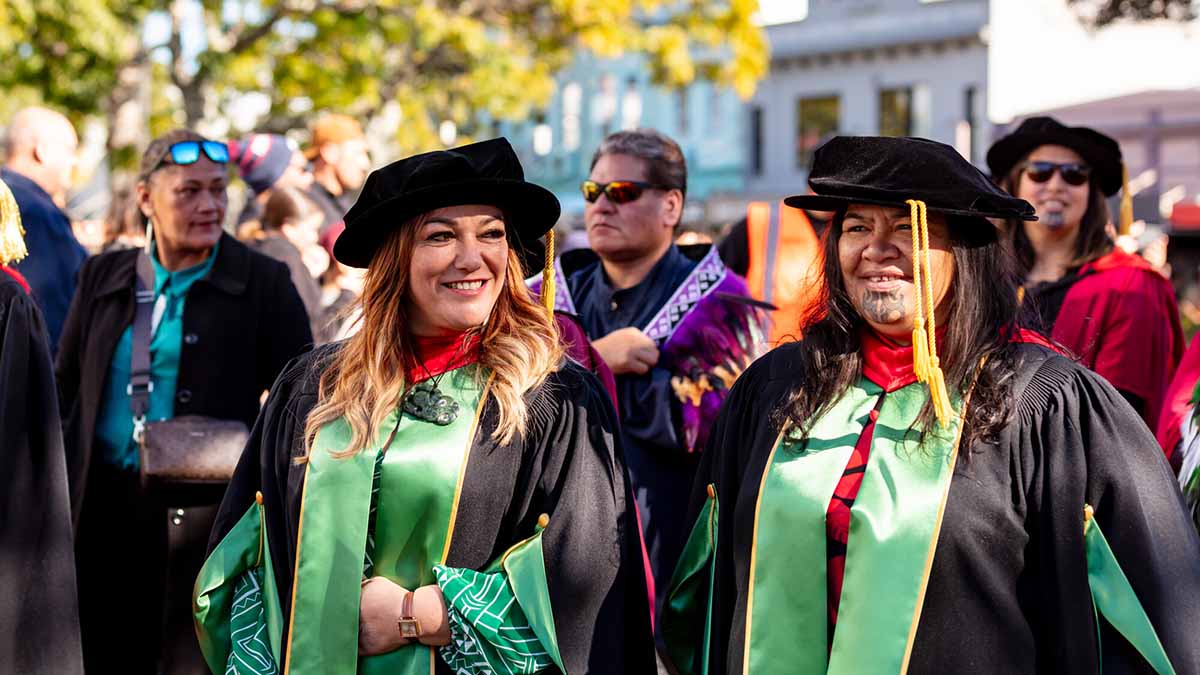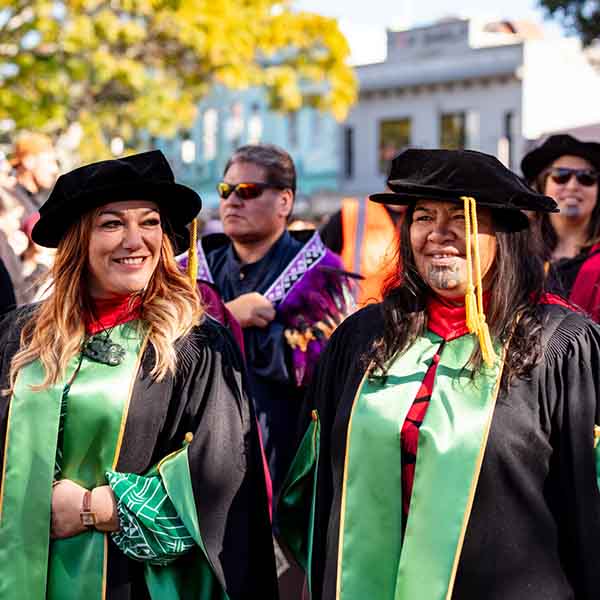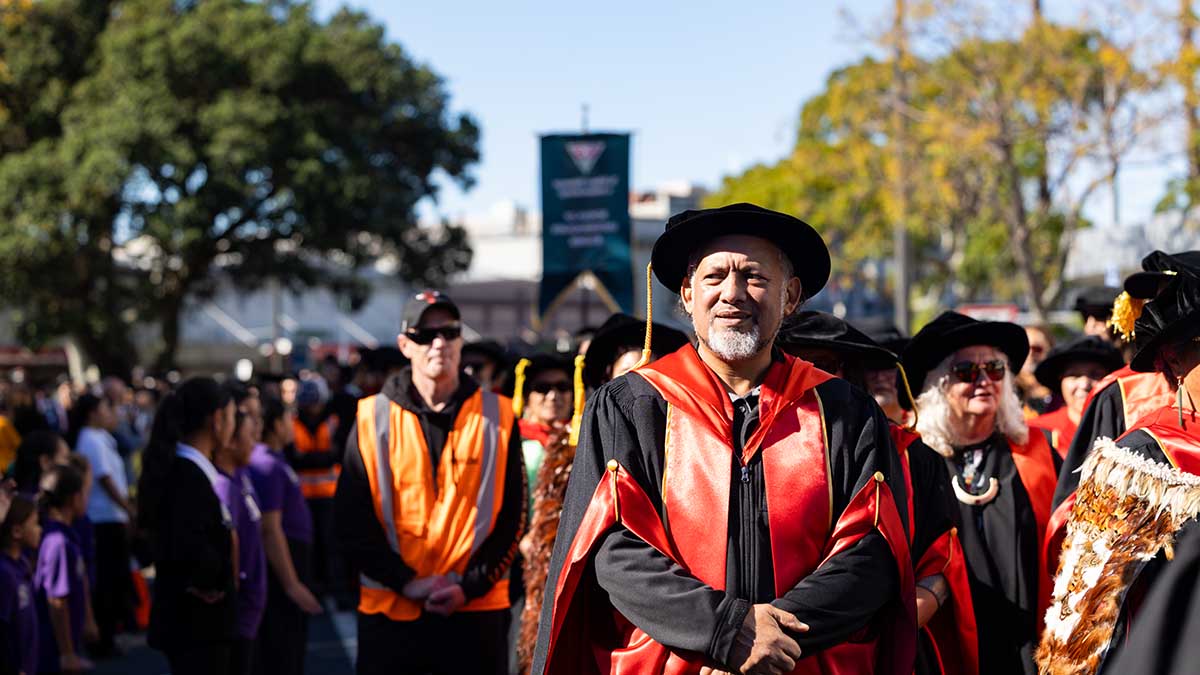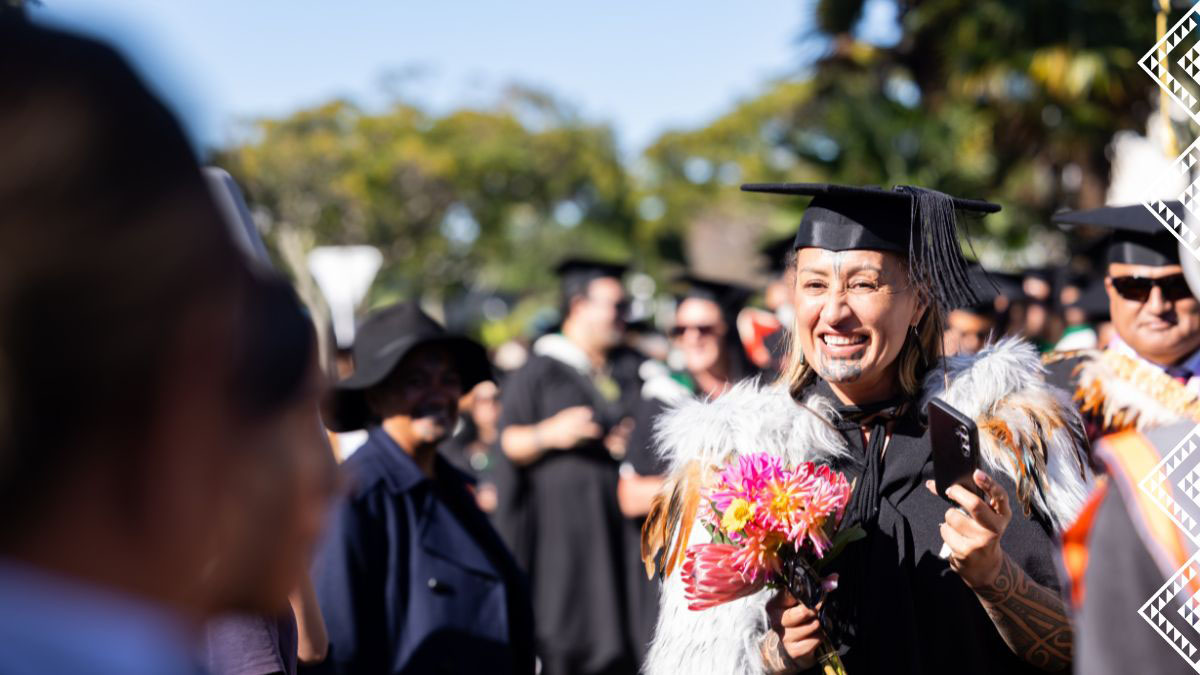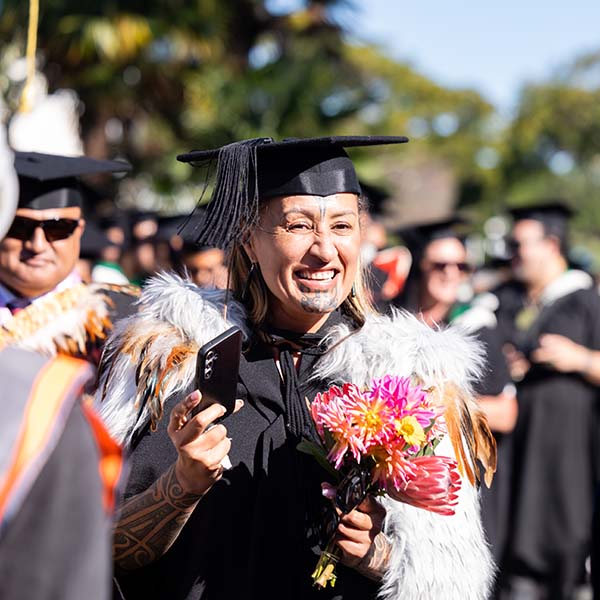Revitalising Te Reo Māori of Ngāti Hauā Iwi
Dr. Robyn Roa was recently honoured with the School of Indigenous Graduate Studies Top Scholar Award upon receiving her Doctorate in Indigenous Development and Advancement from Te Whare Wānanga o Awanuiārangi. She exemplifies a journey of profound connection, a passion for cultural preservation and a steadfast commitment to education and the collective aspirations of her iwi, hapū, and whānau.
Whakarauora i te reo o Ngāti Hauā (Revitalising the Māori language of Ngāti Hauā) is Dr Roa’s thesis, which embodies a vision to reconnect and revitalise the language that was spoken by her mother. The inspiration took root during Ngāti Hauā’s te reo Māori strategy development.
She explains, “For a long time, I thought we should return to our reo, the reo spoken by my mother when I was a child. The seed was planted, and that has been my mahi within Ngāti Hauā from 2017 to 2022 and has since continued to grow working with my hapū, Ngāti Werewere.”
With an extensive background in education, Dr. Roa has seamlessly transitioned into her new part-time role working for Waikato-Tainui iwi, focusing on Mātauranga ā-iwi (tribal knowledge) and te reo (Māori language). She explains, “I’m currently working with a group of pou whirinaki (support people in educational, cultural, or leadership roles) who work with their respective iwi/hapū, marae, and whānau to support kaupapa mātauranga (subjects or projects with a focus on Māori knowledge).
“The work often aligns with the iwi rautaki mātauranga strategy (tribal education) and is designed to extend beyond traditional schooling, ensuring we can continue to work collaboratively to achieve iwi/hapū-driven goals and aspirations that are innovative and focused on Mātauranga Māori, Mātauranga ā-iwi, ā-kura (Māori knowledge within iwi/hapū and schools). That is my mahi, and I have returned home to our marae so that whānau who want to learn the reo of Ngāti Hauā can come back.”
Returning to her marae, she has created a nurturing environment for learning.
“Most tauira (students) are rangatahi (young people). One thing we noticed is that they feel shy in large gatherings, but when they return to their own marae, it’s familiar, so it's easier for them to learn.”
Dr. Roa’s strength is speaking and expressing the more informal words of Ngāti Hauā, and she has compiled a list. She explains, “I currently have a list of around 80 kupu (words). I don’t hear these words being used anymore; they have disappeared. Koinei te tino pūtake o taku tuhinga roa, kia whakahokia mai ngērā o ngā momo kupu o ōku mātua tūpuna.” (This is the main purpose of my thesis, to bring back those words of my ancestors.)
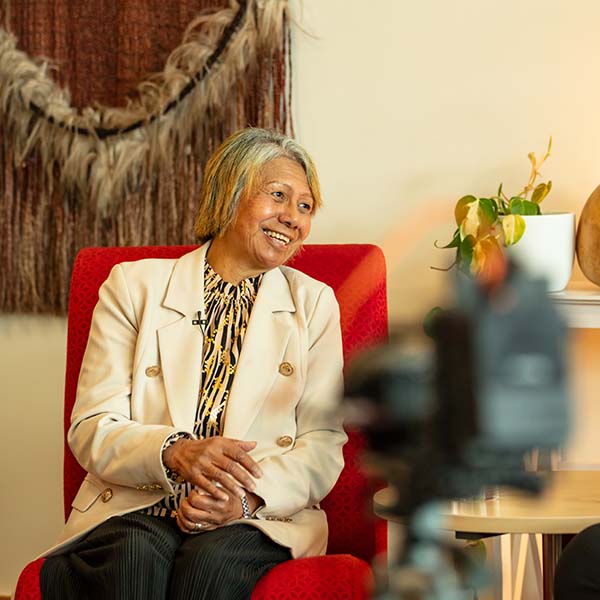
Dr Robyn Roa
Qualifications: Doctor of Indigenous Development and Advancement (Awanuiārangi), Master of Educational Leadership (First Class Honours) (Waikato).
Iwi: Ngāti Hauā, Ngāti Korokī, Ngāti Wairere.
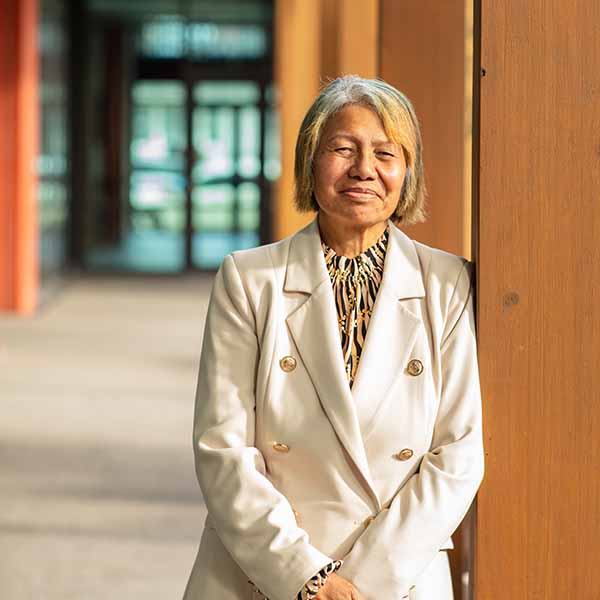
Kimihia he huarahi ako
What can you study?
